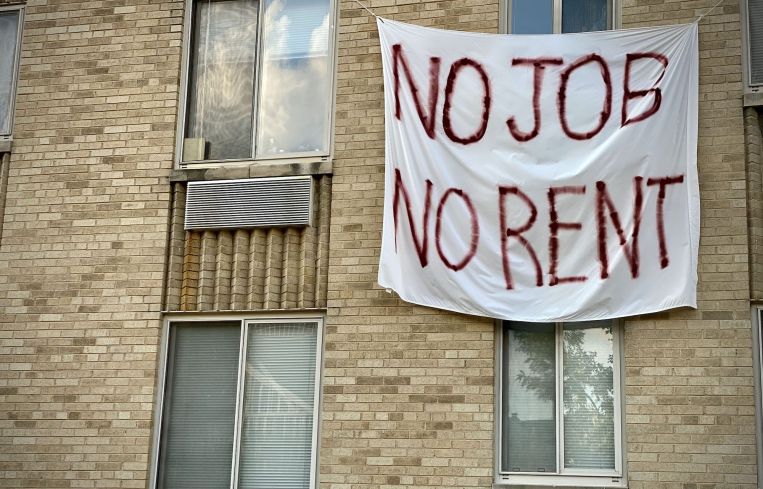Eviction Bans Improved Renters’ Mental Health, Food Security: Study
By Rebecca Baird-Remba August 4, 2021 12:23 pm
reprints
When COVID-19 swept across the U.S. last year, 38 state governments — including California, New York, Florida, Texas and Virginia — enacted eviction moratoriums to ensure that out-of-work renters wouldn’t be booted from their homes because they couldn’t pay rent. Now, a new study from the University of California, Los Angeles’ Ziman Center for Real Estate has found that renters reported better mental health and food security as the moratoriums progressed.
The moratoriums allowed renters to spend more on household necessities — especially groceries — and pay off debt at higher levels than they did before the pandemic, according to UCLA’s analysis. A 12-month eviction moratorium was associated with a 16 and 14 percent increase in credit card spending and payment, respectively.
The researchers also found that each week the eviction moratorium was in place correlated with a 2 percent decline in self-reported food insecurity — people who were either going hungry or weren’t sure where their next meal would come from — among African Americans.
In terms of mental health, U.S. Census survey data collected during the pandemic showed that with each additional week of a moratorium, there was a 1.9 percent decrease in the number of African American households who reported feeling anxious. The same survey found that, as of August 2020, nearly one-half of African American and Hispanic renters said that they had “slight to no confidence” that they would be able to pay next month’s rent on time.
The paper’s authors — Stuart Gabriel, Xudong An and Nitzan Tur-Ilan — argued that there will be a slew of unforeseen costs when the current national eviction moratorium expires. The ban ended on July 31, but the Centers for Disease Control and Prevention extended it on Tuesday until Oct. 3, even after the Biden administration said the previous extension would be the final one.
When the moratorium runs out, the average renter household will owe $5,400 in missed rent payments, even after receiving the 2021 relief checks, according to the National Low Income Housing Coalition. Emergency shelter, medical care, and foster care costs associated with the end of eviction moratoriums will range from $62 to $129 billion, according to the University of Arizona’s Cost of Eviction Calculator.
“The expiration of the federal moratorium on rental evictions will leave renters with few protections in the wake of the expected onslaught of eviction cases,” Gabriel said in a statement. “According to our broad-based statistical analysis, the eviction moratoria had important unanticipated salutary effects — including reductions in food insecurity and mental duress — during the early waves of the pandemic. It is anticipated that these effects will be reversed as current evictions proceed and even as the highly contagious Delta variant requires ongoing social distancing afforded by the moratorium ‘shelter-in-place.’”
Rebecca Baird-Remba can be reached at rbairdremba@commercialobserver.com.



